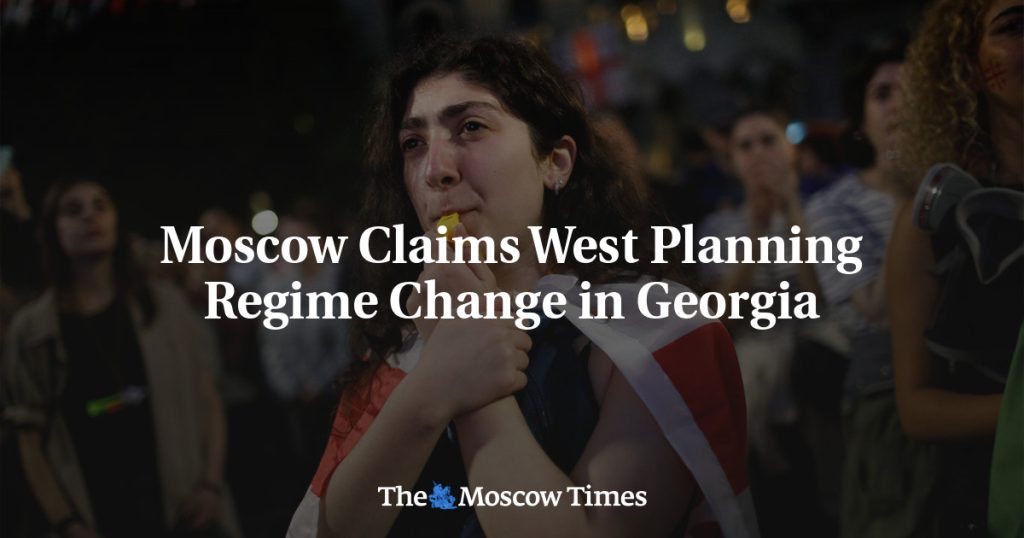Russia’s deputy foreign minister has accused the West of attempting to overthrow the government of Georgia ahead of its parliamentary elections later this year. Tensions have been rising in Georgia following the passing of a controversial law on foreign influence. The deputy foreign minister claimed that the West may be trying to implement a “Maidan” scenario similar to the 2014 revolution in Ukraine. Like Ukraine, Georgia gained independence after the collapse of the Soviet Union in the early 1990s.
The Georgian parliament speaker recently signed the foreign influence law into effect despite widespread protests, a presidential veto, and criticism from Western allies. Georgia’s opposition parties have promised to revoke the law if they secure enough seats in the upcoming parliamentary elections. Washington has announced visa restrictions for individuals who are seen as undermining democratic processes surrounding the Georgian elections, while also reviewing bilateral cooperation with Tbilisi.
There have been comparisons drawn between the mass protests in Ukraine a decade ago and the recent demonstrations in Georgia over the foreign influence law. The law requires NGOs and media outlets receiving more than 20% of their funding from abroad to register as entities serving the interests of a foreign power. The ruling Georgian Dream party has been accused of aligning more closely with Moscow, jeopardizing its relationship with the West. However, the party maintains that it is committed to Georgia’s goal of joining the European Union as written in the constitution.
The situation in Georgia is seen as a potential flashpoint near Russia’s borders, with tensions escalating as the parliamentary elections approach in October. The West’s involvement in Georgia’s internal affairs has been a point of contention, with Russia claiming that the geopolitical implications could lead to further instability in the region. The parallels between the demonstrations in Ukraine and Georgia have raised concerns about the potential for widespread unrest and political change in the country.
As Georgia prepares for its parliamentary elections, the political landscape remains volatile with ongoing protests against the foreign influence law and accusations of government ties to foreign powers. The opposition parties are aiming to capitalize on the discontent among the population and secure victories in the upcoming elections. Washington’s decision to impose visa restrictions on those undermining democratic processes shows the international community’s interest in ensuring free and fair elections in Georgia. The outcome of the elections will likely have significant implications for Georgia’s future trajectory and its relationships with both the West and Russia.


